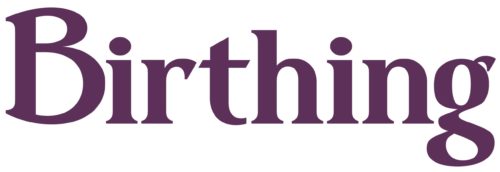It seems a month doesn’t go by in Calgary without a report in the news media or on social media that a woman and child have been asked to move, or to cover up, while breastfeeding in public.
Recent incidents include: complaints from other patrons when a woman breastfed her baby while watching a film at a local theatre, a mother who was told she’d have to leave the store to breastfeed when she took her baby for photographs at a Walmart photo studio, a breastfeeding mother and child asked to go breastfeed in the change room of the Talisman Centre, and a furore that arose when a local radio station compared breastfeeding in public to nose-picking.
The right to breastfeed is protected under Canada’s Charter of Rights and Freedoms, Alberta’s Human Rights Act, and the United Nations Convention on the rights of the child which was ratified by Canada in 1991. The Public Health Agency of Canada and Alberta Health Services encourage women to breastfeed “Anytime, anywhere.”
Most women report they have never experienced harassment while breastfeeding in public, but it does occur, and for every incident that makes the news there are many more that are never reported, or that are resolved quietly. Being asked to move, cover up or leave can have an emotionally devastating toll on a family. Some mothers, having heard of these incidents in the news, choose to never breastfeed outside of the home.
A recent University of Alberta study1 found that while over 90 per cent of Alberta women start out breastfeeding, many don’t continue to breastfeed exclusively to the six-month mark as recommended by health authorities. Researchers identified lack of public support for breastfeeding as one factor leading to early weaning. Clearly this is an important issue.
Alberta was once singled out as the least welcoming place in Canada for breastfeeding women, but the last decade has seen a significant shift in public attitudes. Women have been standing up (and nursing in) for the right to breastfeed their children in public. Many more public places and businesses now have specific policies in place to support and protect breastfeeding women and children. It’s a good thing too. We have over 50 000 babies being born each year in the province!
There are many possible actions you can take to stand up for your rights. Here are some steps that can turn an unfortunate incident into a win-win for all involved. You don’t have to take all or any of the actions here to take a stand. Simply continuing to breastfeed in public helps normalize it and makes a big difference! As the Alberta Breastfeeding Committee’s card says:
“Thank you for breastfeeding your child in public! May future mothers never have to search for a secluded corner, dressing room or restroom to nourish their babies. Breastfeeding in Alberta is becoming the norm and the credit goes to women like you!”
If you are singled out in public and told that your breastfeeding isn’t allowed, that you must cover up, or move to a washroom, what can you do?
In the moment:
- If you are uncomfortable or if your baby is upset, don’t feel that you have to stay just to make a point. Take care of yourself and your child’s needs first — you can address the discrimination later.
- If you are feeling calm enough to continue the discussion, state, “My baby and I have the right to breastfeed here.” If you have one of the Alberta Breastfeeding Committee’s “My Child Has the Right to Breastfeed here!” cards, you can simply hand it over.
- Ask for clarification. “Are you telling me that I can’t breastfeed here?” Ask for a name and a business card from the person who is asking you to cover up, or to move, or is otherwise harassing you.
- When you can, jot down a few quick notes to keep the details fresh in your mind.
- Reach out to your support network. Although most women who report breastfeeding discrimination incidents say it made them feel angry or frustrated, some report feeling shame. This is a good time to connect with the people in your life who are supportive of breastfeeding, and if you feel upset or isolated please reach out to your local breastfeeding support group, La Leche League, a lactation consultant, or your public health nurse and ask for help.
- Report the incident even if you don’t want to act on it. Some women don’t want to pursue the incident, and that is perfectly ok. Consider reporting it to your local breastfeeding organization, though, so they know that it happened, and can keep track of incident statistics. They will not make the incident public if you ask them not to. Your go-to for Calgary is the Calgary Breastfeeding Matters Group. In Edmonton, contact the Breastfeeding Action Committee of Edmonton. The Alberta Breastfeeding Committee can also help connect you with support in your area. Best for Babes runs the NIP Hotline where you can report incidents of harassment at 1-855-NIP-FREE, and yes, it works in Canada! Volunteers will offer support and encouragement and connect you with local people in your city or province who can help.
Take action:
- Contact your local breastfeeding advocacy group(s). They can be very helpful in organizing and supporting any course of action you take. They may be able to connect you with mothers who have gone through similar experiences (perhaps even at the same establishment) who can guide and support you. They can also let you know what to expect if you go public and they can help you prepare for media interviews.
- Consider what concrete action you want the facility or business to take to remediate the situation. In order to avoid human rights complaint tribunal rulings, which can include hefty fines, retailers usually need to put in place a breastfeeding in public policy and training for staff. They should apologize publicly, in person and in writing to the family who was harassed.
- Contact the manager or owner and make your concerns known. Request concrete actions to remediate the situation. Keep a record of who you have called or emailed, and give them several business days to respond. Escalate your complaint to a customer service or national head office (or to your local politician if it is a public facility) if you do not feel the first response you receive is satisfactory.
- Reach out to your support network, in person and on social media. Let them know what happened and what you have requested to remedy the situation.
- If there is no satisfactory response, the following courses of action are available to you:
- You can take legal action including making a human rights complaint.
- You can make the incident public through social media or mainstream media.
- You can launch a petition, or hold a protest or nurse-in.
- If the organization sincerely apologizes, and takes genuine steps to make amends and to ensure a similar incident doesn’t happen again, you may want to publicly thank them and encourage other breastfeeding mothers and families to continue to support them. Some organizations adopt formal Breastfeeding Friendly policies after a discrimination incident and become safe and welcoming places for breastfeeding families. Some moms have held breastfeeding celebrations, often with the cooperation of the organization, to reiterate the importance of supporting breastfeeding mothers and children in public.
- Know that taking a stand for yourself and for your child is also a taking a stand for all mothers and babies.
How to support a friend who is harassed for breastfeeding in public:
First, the worst thing you can say is, “I breastfed all my children everywhere and that never happened to me!” Especially if you follow it up with, “Oh, but I was always discreet/wore a cover/never showed any breast.” It HAS happened to this mom, and suggesting that she should have done something different or that she caused it to happen is victim blaming. Instead, try, “I’m so sorry this happened to you! I breastfed my children in public and this never happened to me, but if it had, I think I would have felt angry, or maybe even ashamed! How did it make you feel?” The majority of women report feeling angry or frustrated when they encounter breastfeeding discrimination, but a smaller number say they feel violated, or feel shame. These are the women we worry about the most, because lack of support is a leading reason for early weaning.
Many of us feel anger when we hear about another women experiencing discrimination for breastfeeding and we want to take action to right the wrong. It’s important not to rush to action. Check in with the mom first and make sure she’s well supported, and that she wants to take things further. This is especially important if there is media coverage — many women face further harassment when their stories are told in public. Having lots of support can be vital to avoid being further victimized. You can help by outlining some of her options, and pointing her in the right direction if she wants to file a complaint or resolve the issue by connecting with management. If she doesn’t want to be in the limelight, don’t push it. There are lots of other ways for you to support the cause, including a donation or volunteering with your local breastfeeding advocacy organization. And if she wants help to organize a complaint or a protest, by all means, let her know you’ve got her back. Round up a network to help her take the steps necessary for a successful resolution. Then you can follow-up with a breastfeeding celebration! B




